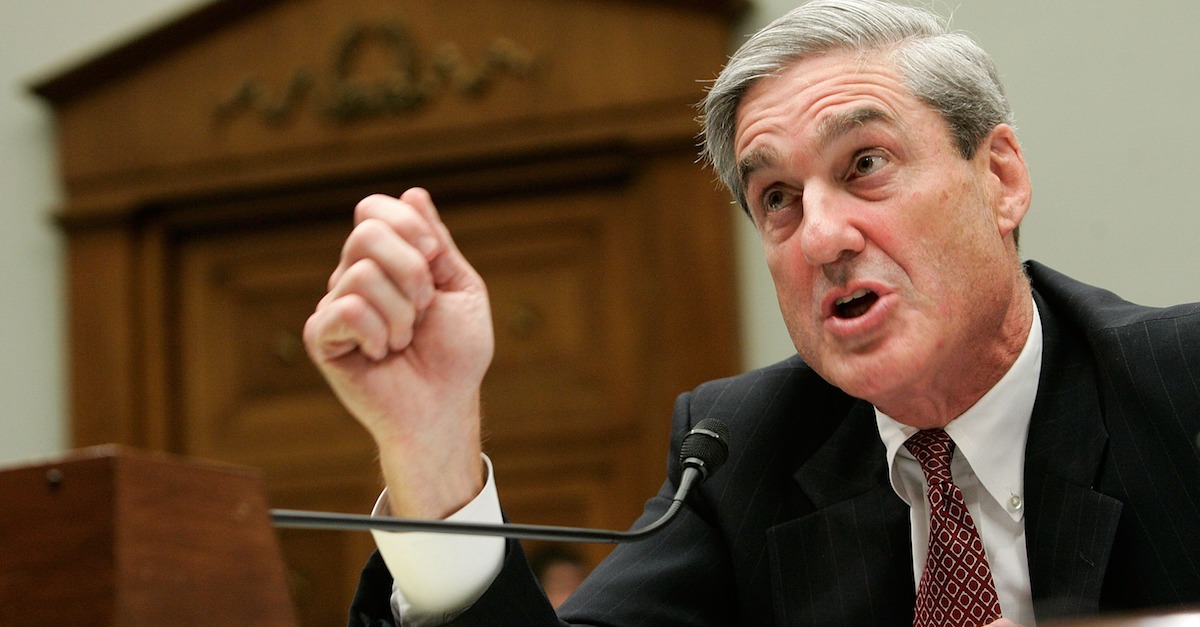
Special Counsel Robert Mueller was appointed to his post to investigate Russian efforts to influence the 2016 election, and he indicted Concord Management and Consulting LLC for allegedly running a massive disinformation campaign (troll farms) along the way. That was in February 2018. Despite the recent revelation that non-sensitive discovery in the case was leaked and used for, you guessed it, another disinformation campaign, Concord is now claiming it is the victim in all of the this, and demanding the judge compel discovery so it can prove that.
In a Tuesday filing, Mueller responded to the Concord’s latest legal gambit, which is to claim that Mueller is selectively prosecuting the company. This complaint echoes complaints that we’ve heard since Mueller started handing down indictments. Whether in the cases of Paul Manafort, Roger Stone, George Papadopoulos, or Michael Flynn, complaints about Mueller and the FBI’s handling of things has been characterized as extreme and selective.
Concord decided to take this path, too.
Mueller has responded to the argument by saying it was a “fail.” Mueller noted that Concord made its first selective prosecution claim in August 2018, in which it said that it had a “colorable claim” that Mueller “has selectively pursued only individuals and entities of Russian nationality who allegedly supported the campaign of President Trump.” Indeed, they claimed that Mueller has been carrying on an investigation with a “discriminatory purpose.”
The court had already rubbished the claim in October 2018, but Mueller saw fit to do that again today, after Concord claimed to have more evidence of selective prosecution:
On January 22, 2019, Concord filed the instant motion, arguing that a recent “declination letter” issued by the Department of Justice’s National Security Division (“NSD”) regarding an allegation of a violation of the Foreign Agents Registration Act (“FARA”) established grounds for discovery on Concord’s claim of selective prosecution.
Concord’s second motion for discovery on a claim of selective prosecution should be denied.
Mueller said that Concord failed both parts of the relevant legal test.
“A defendant is not entitled to discovery on a claim of selective prosecution absent a ‘colorable showing’ that (1) the defendant was ‘singled out for prosecution from among others similarly situated’ and (2) ‘the prosecution is improperly motivated, i.e. based on an arbitrary classification,” Mueller said. “Concord’s second motion fails both prongs [of the test].”
He said that Concord’s situation is “not remotely similar” to that of a law firm Concord cited in its motion. Why? Because the law firm “is not alleged to have condoned the former partner’s actions, let alone also to have engaged in anything akin to the numerous acts of deception and concealment as alleged against Concord. Nor is the former partner, let alone the law firm, alleged to have participated in any systemic effort to engage in U.S. election interference as the indictment describes.”
As far as the second part of the test was concerned, Mueller said that Concord didn’t bother to argue anything new.
“Concord’s motion sets forth no new argument to support its claim that this prosecution is improperly motivated,” he said. “Because Concord still has not made a colorable showing either that it was singled out for prosecution from among others similarly situated or that the prosecution is improperly motivated, it is not entitled to discovery on its claim of selective prosecution.”
Mueller responds to Concord… on Scribd
[Image via Alex Wong/Getty Images]